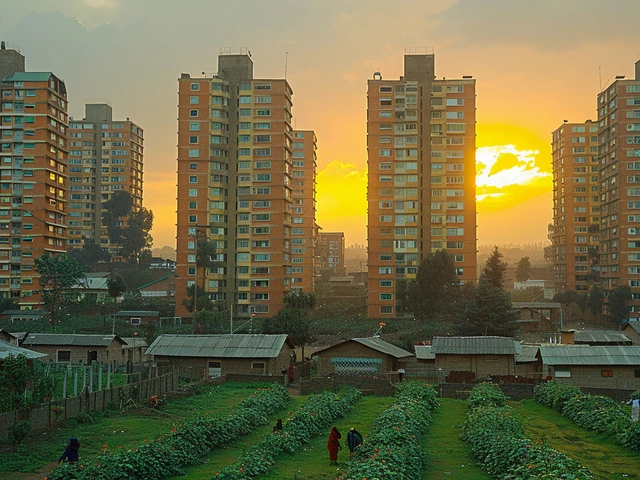Expat Life in Ethiopia: What You Really Need to Know
Thinking about moving to Ethiopia as an expat? Before you pack your bags, it’s smart to get a handle on what daily life, jobs, and living costs look like. Ethiopia, full of vibrant culture and fast-growing cities, is unlike anywhere else. So what should you actually expect?
Salaries in Ethiopia might surprise you. Average incomes are lower than many Western countries, but the cost of living can also be a lot more manageable—especially outside luxury neighborhoods in Addis Ababa. For instance, house rent in Ethiopia covers a wide range: you can find small apartments for a couple hundred dollars a month, while modern units in the capital’s hottest areas fetch more.
Wonder about job opportunities? The country is experiencing a real economic buzz. Industries like agriculture, construction, and technology are picking up speed, thanks to government reforms and investment. There’s demand for skilled workers, especially in healthcare, teaching, tech, and business. If you’re an expat with experience in these fields, you’ll find doors open, though it pays to dig deep into local salary structures and negotiate based on position and sector.
Opening a business or investing comes with its own quirks. Ethiopia is actually known as an up-and-coming destination for business opportunities. Foreign investors are eyeing agriculture, manufacturing, and IT. Regulations can be a bit of a maze and the minimum investment amounts in certain sectors are higher than you’d expect, but plenty manage to make it work. Some expats have found e-commerce and freelancing (like online teaching or digital services) as a great way to build income, especially since internet adoption is climbing fast.
Let’s talk practicalities. PayPal isn’t officially supported, so getting paid from overseas gigs can be tricky, but people usually work around it with international bank transfers or apps popular in the region. Health and safety? Addis Ababa, for example, balances vibrant nightlife and a buzzing street life with some challenges like traffic and the need for alertness, especially in crowded places. Crime rates are relatively low compared to other big African capitals, but smart expats stay aware and plugged into expat networks for local tips.
Language can be a barrier, but Amharic isn’t the only one spoken; English is widely understood in business and expat circles. Knowing a bit of Amharic will open more doors, especially if you venture outside the capital. And if you’re worried about fitting in, Ethiopian hospitality is legendary—neighbors and coworkers are quick to invite you for coffee or share a meal.
What about social life? Apps like Tinder actually have a following in the bigger cities, so meeting new people—locals and fellow expats alike—can be pretty easy. The expat community isn’t huge but it’s active, sharing info about everything from housing to the best weekend getaways.
Expats who adjust fastest keep an open mind, budget realistically, and don’t expect things to work exactly like “back home.” Life here is a mix of old-world tradition and rising modernity. If you’re up for a change, Ethiopia serves up both challenges and big opportunities—the kind you won’t find anywhere else.






